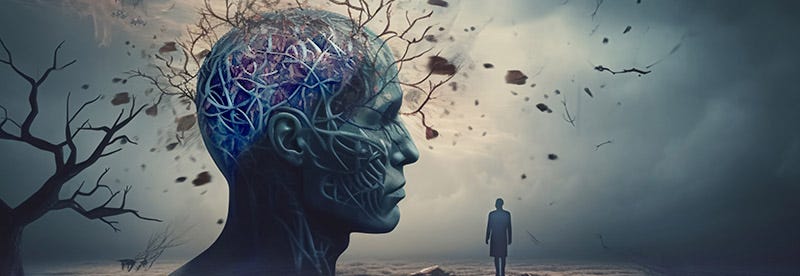
Philosophy | Mindfulness
In our pursuit of knowledge, the greatest mystery might be our own minds.
This intricate system of thoughts, emotions, and memories has been the subject of philosophical debate and scientific inquiry for centuries. However, despite these extensive efforts, we must fully comprehend our mental processes. My article looks into the philosophical and scientific perspectives on why comprehending our own minds is so elusive.
Philosophers have long struggled with the paradox of self-knowledge. On the one hand, we have an intimate, first-person experience of our thoughts and feelings. On the other hand, we often find ourselves surprised by our own reactions and behaviors, suggesting that our understanding of our minds is incomplete.
The subject-object problem complicates our understanding of our minds. As conscious beings, we are both the observers (subject) and the observed (object). This duality leads to a paradox: How can one fully comprehend oneself when the act of comprehension changes the nature of the comprehended? The same problem occurs in the somewhat spooky science of quantum physics.
Introspection, the process of self-examination, is a favorite tool of philosophers. However, it has its limits. We can only reflect on our conscious thoughts and feelings, leaving a vast realm of subconscious processes unexplored. Moreover, introspection can be biased and unreliable, as our beliefs, desires, and fears influence our interpretations of our thoughts.
The human brain is the most complex structure in the known universe, consisting of approximately 86 billion neurons interconnected in a vast network. This complexity presents a formidable challenge to our understanding. Scientists have made significant strides in mapping the brain and identifying the regions responsible for various functions. Still, much remains unknown about how these components work together to generate consciousness and cognition.
Consciousness, our subjective experience of the world, remains one of the greatest mysteries in neuroscience. Despite advances in neuroimaging technologies, scientists have yet to pinpoint how and where consciousness arises in the brain. This has led some researchers to propose radical theories, such as panpsychism, which suggests that consciousness is a fundamental property of the universe, akin to mass or energy
Recent research in psychology and neuroscience has revealed that a significant portion of our mental processes occur outside of our conscious awareness. These unconscious processes influence our thoughts, feelings, and behaviors in ways we often do not recognize, further complicating our understanding of our own minds.
Our brains use shortcuts, known as heuristics, to process information quickly and efficiently. However, these shortcuts can lead to cognitive biases and systematic errors in our thinking that distort our perception of reality. They are more like gut instincts and are just as likely to be wrong as correct. These biases operate unconsciously, shaping our thoughts and decisions without our knowledge.
While we may never fully grasp our minds, the pursuit of self-knowledge is nonetheless valuable. Understanding our thoughts, emotions, and biases can help us navigate the world more effectively, make better decisions, and lead more fulfilling lives.
As our tools and techniques evolve, so too will our understanding of our minds. Advances in artificial intelligence and neuroimaging promise to shed new light on the workings of the brain, while developments in philosophy and psychology continue to deepen our insights into the human experience.
While grasping our own minds may be an impossible goal, it is a journey worth undertaking. As we look into the depths of our consciousness, we not only gain a greater understanding of ourselves but also of the world around us. The mind, in all its complexity, continues to be one of the greatest frontiers of exploration, and its mysteries are waiting to be unraveled.
Please follow me for more thoughtful articles. Thank you!